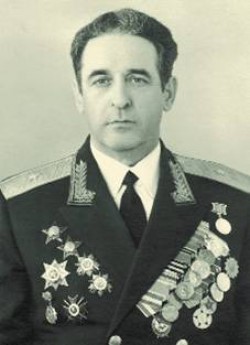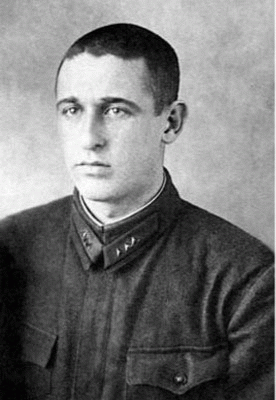Piotr Bograd was born as Peisakh Bograd in 1920 in the mixed Jewish-German agricultural colony of Dobroe, south Ukraine (ca. 50 kilometers northeast of Nikolaev). In his youth, his father Leib was a cattle drover, but later he opened a cheese dairy. Under the Soviets, he worked at a cheese factory in Niklolaev. Despite that, in the late 1930s, Leib was declared a "bourgeois element;" this hindered the career of his elder son. In 1926, against the resistance of his parents, Peisakh's grandmother sent him to a kheider, a traditional Jewish elementary school, which he left after a year for a Soviet Yiddish school. In the late 1920s and 1930s, Peisakh performed agricultural work together with adults. In the late 1930s, Bograd graduated from the Poltava railway tekhnikum (college) and then worked on the construction of a railroad in Kazakhstan. In October 1939, he was drafted into the railway troops (that constructed, repaired, and defended railway tracks). It was there, in the Red Army, that Peisakh Bograd officially became Piotr Bograd. In 1940-1941, he studied at an infantry school.
Lieutenant Piotr Bograd was in Lithuania when the Germans launched Operation Barbarossa. His 204th Motorized Rifle Regiment took part in the abortive attempt to defend northern Lithuania and Latvia from the advancing Wehrmacht at the end of June 1941. During the regiment's retreat from Latvia eastward, he was wounded. After being released from hospital, he was sent to a commanders' course. However, he failed to finish it because in September 1941 he was sent to take part in the defense of Moscow. After several transfers, on December 30, 1941, Bograd began serving as the deputy commander of a battalion within the 21st Rifle Division deployed on the Karelian Front, in the North.
Bograd spent the years from 1942 to 1944 on the Karelian Front, gradually moving northward to the Arctic Circle. He was first a battalion commander, then, from July 1942, the chief of staff of the 116th Regiment, and subsequently the head of the operational department of the staff of the 122nd Rifle Division. In the Arctic area from early 1944, the division's adversary was the German 20th Mountain (former Lapland) Army.
In November 1944, with the 122nd Rifle Division, Lieutenant Colonel Bograd was transferred to Hungary. There the division took part in the unsuccessful fighting for Székesfehérvár (the only Red Army retreat in 1945), then in the battle for Budapest, and the capture of Nagykanizsa, in western Hungary. From there, the division moved on to Slovenia and to Austria. Bograd ended the war in the vicinity of Vienna.
After the war, Piotr Bograd continued his military service. His promotion was impeded by the Stalinist anti-Jewish campaign of 1948-53, but in 1955 he received the rank of colonel and in 1967 – that of major general. In the 1970s and 1980s, Bograd was the only Jew to serve in the central apparatus of the Soviet Ministry of Defense. He retired in 1987.
Piotr Bograd's parents succeeded in fleeing from Nikolaev in 1941, but his grandmother and other relatives who were in Dobroe were killed by the Nazis. His only brother Ruvim fell at Stalingrad at the end of 1942. After the war, Piotr visited his native village; he was stunned to learn that their former neighbors, German colonists from Dobroe, had actively collaborated in the murder of Dobroe's Jews.
In the wake of perestroika (1987-91), Piotr Bograd was one of the initiators of the establishment of the Russian Research and Educational Holocaust Center in Moscow (founded in 1992). He headed its military-historical section. He was also one of the leaders of the Russian Association of Jewish War Veterans and the head of the Russia-Israel section of the Russian Committee of War Veterans.
Piotr Bograd died in 2006.








